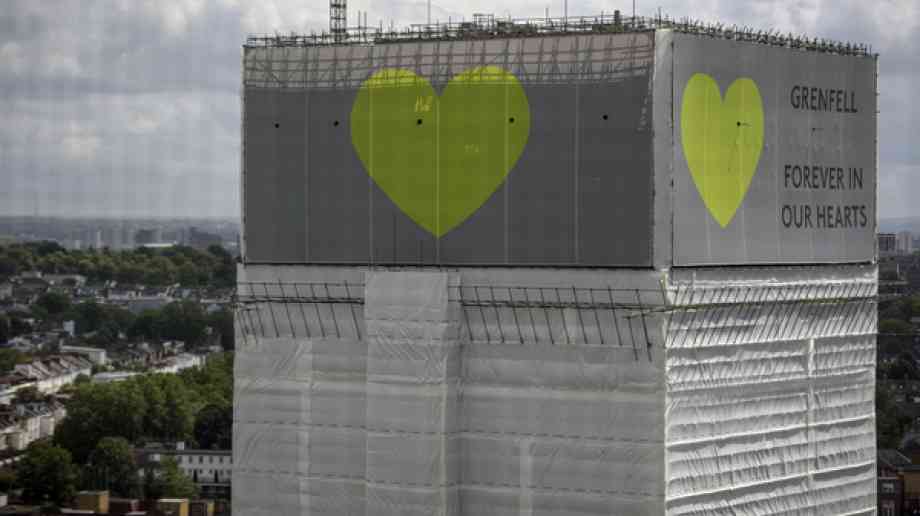Sue Robb of 4Children talks to Julie Laughton and Alison Britton from the Department for Education about the role of childminders in delivering the 30 hours free entitlement.
Government risks another Grenfell incident

As we approach the two year anniversary of the Grenfell Tower tragedy, the Fire Brigades Union has warned that the government has done nothing to adequately prepare fire and rescue services for a similar incident.
New evidence reveals a postcode lottery of preparedness across the country, with some fire services planning to send as few as two fire engines to a high rise fire. The Fire Brigades Union (FBU) claims that the Fire Minister, Nick Hurd, has repeatedly misled the public about fire services’ preparedness and has grasped neither the severity nor the basic details of the risk.
40 fire engines were sent to Grenfell Tower on the night of the fire, in which 72 people are recorded as having lost their lives. The data collected by the FBU reveals that resources outside of London are so stretched that fire and rescue services would not be able to mobilise anywhere near that scale.
Therefore, the FBU calls on the government to end the postcode lottery of public safety by implementing a national review to understand the scale of failed compartmentation in residential buildings, alongside national standards for the pre-determined attendance – the number of firefighters and fire engines that would initially be sent – for fires in high-rise blocks.
There are still at least 338 residential buildings wrapped in the flammable ACM cladding which caused the fire at Grenfell to spread so quickly, with the FBU also stressing that the government has done nothing in the two years since Grenfell to address the concerns of residents and have failed to launch a national review of the ‘stay put’ policy.
Matt Wrack, FBU general secretary, said: “We’re shocked at the utter complacency of the Fire Minister. 72 people died at Grenfell Tower, a fire for which London Fire Brigade had not planned. Yet the minister still does not grasp the severity, or even the basic details, of the risk across the country.
“It’s no longer possible to claim that fire like Grenfell is unforeseeable. Firefighters were placed in an impossible situation that night. But two years on, the government still has not provided the planning and resources necessary to prepare firefighters for what are now completely foreseeable risks. It is extremely worrying that as part of their pre-determined attendances, some services only plan to send two engines to a fire in a high rise building. That is nowhere near enough to tackle a blaze which occurs when compartmentation fails, like it did at Grenfell.
“Fire and rescue services are clearly basing their pre-determined attendances upon a situation where compartmentation works. But at Grenfell it was the failure of compartmentation that caused the fire to spread so rapidly and virtually none are prepared for such an incident. Even with this optimistic assumption, the levels of attendance are mostly utterly inadequate. The difference in pre-determined attendances is also deeply worrying – there is no reason why which part of the country a building is located in should determine the safety of its residents. Grenfell proved the UK government’s utter complacency on fire safety. We need robust national standards to make sure that the lessons from that night are applied everywhere.”
Company Focus
Located in Bromley, Japanese Knotweed Eradication Ltd has been providing solutions in the treatment and removal of Japanese Knotweed (Fallopia Japonica) for over a decade. During this time we have mastered a repertoire of methods, from herbicidal treatments to landscaping solutions, tailored to address the unique challenges our clients face with this pervasive weed.
Event Diary
UKREiiF has quickly become a must-attend in the industry calendar for Government departments and local authorities.
The multi-award-winning UK Construction Week (UKCW), is the UK’s biggest trade event for the built environment that connects the whole supply chain to be the catalyst for growth and positive change in the industry.
Supplier Profiles
Geo Energy
At GeoEnergy Design, we're on a mission to disrupt the traditional way heating and cooling ha
Latest Features
Professor Harith Alani, director of the Knowledge Management Institute at the Open University explains how AI can be used for good and bad.
Alex Lawrence, head of health & social care, techUK sets out techUK’s Five Point Plan for CareTech.

















